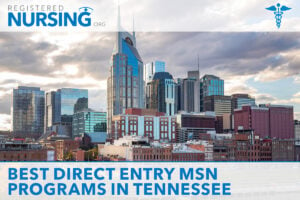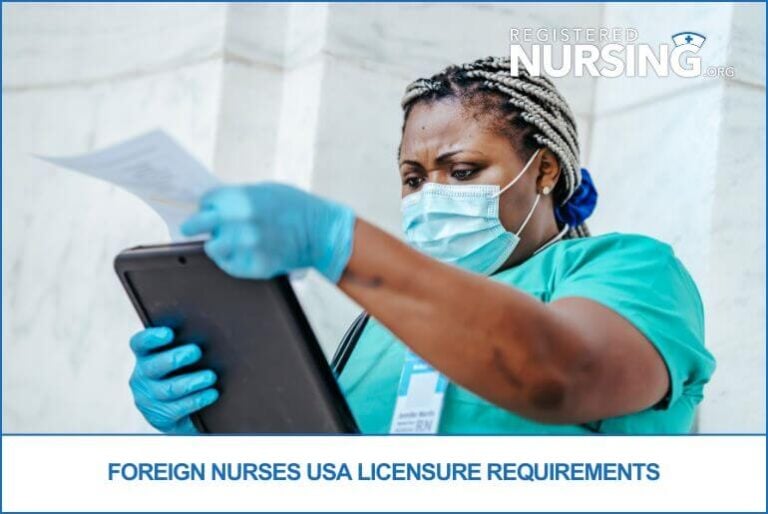The United States continues to face a nationwide nursing shortage, and internationally educated nurses are helping bridge the gap. For foreign-educated nurses who want to practice in the U.S., understanding the licensure process is essential. While the path may seem complex, thousands of international nurses successfully earn licensure each year and go on to build fulfilling careers in American healthcare.
To work as a registered nurse (RN) in the U.S., foreign nurses must go through a multi-step process that includes education credential evaluation, English proficiency testing (if applicable), state licensure application, passing the NCLEX-RN, and in most cases, securing the appropriate visa. Requirements may vary slightly by state, but the core steps are consistent. Understanding this process early and preparing accordingly can significantly reduce delays and improve your chances of success.
This guide outlines the U.S. licensure requirements for foreign nurses in 2025, explaining what to expect, how to prepare, and where to find the right support and resources.
Can Foreign Nurses Work in the U.S.?
Yes, but they must first meet all U.S. licensure requirements. Foreign nurses cannot practice in the U.S. without passing the NCLEX-RN (or NCLEX-PN for practical nurses) and obtaining licensure from a state Board of Nursing. In addition, most foreign-educated nurses must verify their educational credentials and demonstrate English language proficiency.
International nurses also need authorization to work in the U.S. through an appropriate visa, such as the EB-3 immigrant visa. Employers may sponsor nurses once they have met credential and exam requirements. The immigration process and visa approval can be lengthy, so it is important to align job applications with visa timelines.
Step-by-Step Licensure Process for Foreign Nurses
Becoming a licensed RN in the U.S. as an internationally educated nurse involves the following major steps:
1. Credential Evaluation
Before applying for the NCLEX or state licensure, foreign nurses must have their educational and professional credentials evaluated. This is typically done through an approved organization like:
- CGFNS International (Commission on Graduates of Foreign Nursing Schools)
- Educational Records Evaluation Service (ERES)
These agencies verify your nursing diploma, transcript, and license. Most state boards require CGFNS's Credentials Evaluation Service (CES) or a similar report. The evaluation process can take several weeks to months, depending on how quickly documents are received and processed.
2. English Language Proficiency
Unless you completed your nursing education in an English-speaking country (such as Canada, the UK, Australia, or New Zealand), you'll likely need to take an English proficiency test such as:
- TOEFL iBT (Test of English as a Foreign Language)
- IELTS Academic
- Pearson Test of English (PTE) Academic
Score requirements vary by state and by the credentialing agency. Some states may also waive the English requirement if you completed secondary education in English. Make sure to review the language policy of your chosen Board of Nursing.
3. Apply to a State Board of Nursing
Each U.S. state has its own Board of Nursing (BON) and licensure process. You must apply to the BON in the state where you plan to work. This application may include:
- Background check and fingerprinting
- Submission of credential evaluation report
- Proof of English proficiency
- Application fee (typically $100–$300)
- Completed application forms with supporting documents
Use this state licensing guide to find state-specific instructions. Some states also offer temporary permits for nurses with pending licensure applications, allowing you to work under supervision.
4. Authorization to Test and NCLEX-RN
Once your application is accepted, the state BON will issue an Authorization to Test (ATT), allowing you to register for the NCLEX-RN exam through Pearson VUE. This computer-based exam measures your readiness to practice safely and effectively as an entry-level nurse in the U.S.
Test centers are available in many countries worldwide. Some foreign nurses choose to take the NCLEX while still living abroad. It's highly recommended to begin preparing early and use official NCLEX prep tools.
5. VisaScreen® Certificate
To obtain a work visa or green card, foreign nurses must secure a VisaScreen® Certificate, issued by CGFNS. This certificate confirms that:
- Your credentials are equivalent to a U.S.-trained nurse
- You've passed an English proficiency test (if required)
- You've passed the NCLEX-RN or CGFNS Qualifying Exam®
The VisaScreen® is required by the U.S. Department of Homeland Security for immigration processing. Many employers will require proof of this certificate during recruitment.
6. Secure a Job and Work Visa
Many U.S. employers sponsor international nurses through the EB-3 immigrant visa. This process can take several months to over a year, depending on your country of origin and visa category.
Other options include:
- TN Visa for Canadian nurses (under NAFTA/USMCA)
- H-1B Visa for advanced practice roles (rare and competitive)
- Employment through international recruitment agencies that assist with placement, immigration paperwork, and relocation support
Understanding Credential Evaluation
Credential evaluation is one of the most important early steps in the licensure process. It ensures that your foreign education meets U.S. nursing standards and that your coursework and clinical experience are equivalent.
A typical evaluation report includes:
- Verification of nursing school credentials
- Comparison of coursework and clinical hours to U.S. standards
- License verification from your home country's regulatory authority
- Evaluation summary submitted directly to your selected state BON
Tip: Choose an agency approved by the state where you plan to apply. Most foreign nurses use CGFNS, as it is accepted by all 50 states and also issues the required VisaScreen® Certificate. Submit all forms and documents carefully to avoid processing delays.
Which U.S. States Are Easiest for Foreign Nurses?
While all states require NCLEX and credential evaluation, some have more streamlined processes, fewer residency requirements, or do not require Social Security Numbers at the application stage. These differences can have a significant impact on your timeline.
| State | Accepted Evaluation Agencies | SSN Required for Licensure? | CGFNS Certificate Required? |
| New York | CGFNS, ERES, Josef Silny | No | No |
| Texas | CGFNS CES | Yes | No |
| Florida | CGFNS, Josef Silny | Yes | No |
| Illinois | CGFNS CES | No | Yes |
| California | CGFNS, ERES | Yes | No (but strict requirements) |
Note: Always verify current requirements with each state BON, as regulations may change. Some states may offer expedited processing or accept more credentialing agencies, giving applicants more flexibility.
Frequently Asked Questions
Do I need to take the NCLEX if I've already passed a licensing exam in my country?
Yes. All nurses must pass the NCLEX-RN to be licensed in the U.S., regardless of previous exams passed abroad.
Can I work in the U.S. while waiting for my visa or NCLEX?
No. You must have a valid work visa and active state licensure before you can legally work as a nurse in the U.S.
How long does the licensure process take for foreign nurses?
It varies widely, but typically takes 6 to 18 months. Delays may occur due to document processing, visa wait times, or incomplete applications.
Can foreign nurses work in the U.S. as LPNs instead of RNs?
Yes. Some nurses choose to pursue licensure as Licensed Practical Nurses (LPNs), which may have slightly different requirements. However, career growth and salary opportunities are typically greater for RNs.
Final Tips for Success
- Start early: Credential evaluation and immigration steps take time. Begin collecting your documents as soon as possible.
- Choose your state carefully: Review BON rules before applying, especially regarding accepted credentialing agencies and SSN requirements.
- Prepare thoroughly for the NCLEX: Consider taking a review course or using official NCLEX prep resources.
- Stay organized: Keep copies of every document, email, and application. Missing paperwork can cause significant delays.
- Seek guidance: International nursing organizations, forums, and recruiters can help guide you through the process.
Foreign nurses are a vital part of the U.S. healthcare workforce. With preparation, patience, and persistence, you can successfully achieve licensure and begin a meaningful career as a nurse in the United States.
Sources
- CGFNS International
- U.S. Citizenship and Immigration Services (USCIS)
- National Council of State Boards of Nursing (NCSBN)
- Bureau of Labor Statistics
- TOEFL
- IELTS
Latest Articles & Guides
One of the keys to success as a registered nurse is embracing lifelong learning. Our articles and guides address hot topics and current events in nursing, from education to career mobility and beyond. No matter where you are on your nursing journey, there’s an article to help you build your knowledge base.
Browse our latest articles, curated specifically for modern nurses.




